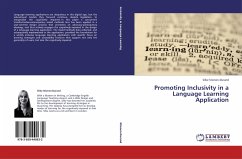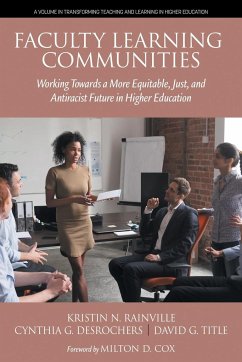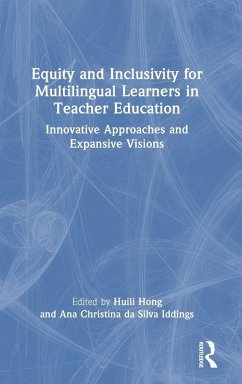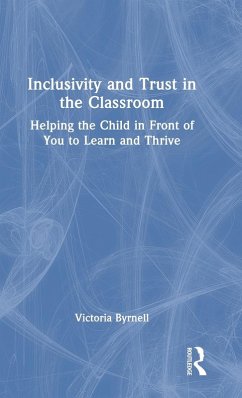
Promoting Inclusivity in a Language Learning Application
Versandkostenfrei!
Versandfertig in 6-10 Tagen
43,99 €
inkl. MwSt.

PAYBACK Punkte
22 °P sammeln!
Language learning applications are ubiquitous in this digital age, but the educational models they forward continue, despite legislation, to marginalise the cognitively impaired. In this paper a concurrent transformative-emancipatory mixed methods lens has been applied in a user-centred design process that promotes an advocacy-participatory ideology, and thus actively engages the cognitively impaired in the design of a language learning application. The mixed methods data collected, and subsequently implemented in the application, provided the foundation for a wholly inclusive language learnin...
Language learning applications are ubiquitous in this digital age, but the educational models they forward continue, despite legislation, to marginalise the cognitively impaired. In this paper a concurrent transformative-emancipatory mixed methods lens has been applied in a user-centred design process that promotes an advocacy-participatory ideology, and thus actively engages the cognitively impaired in the design of a language learning application. The mixed methods data collected, and subsequently implemented in the application, provided the foundation for a wholly inclusive language learning application with specific focus on learning strategies and accessibility features that support not only the generality of users, but also the cognitively impaired.












